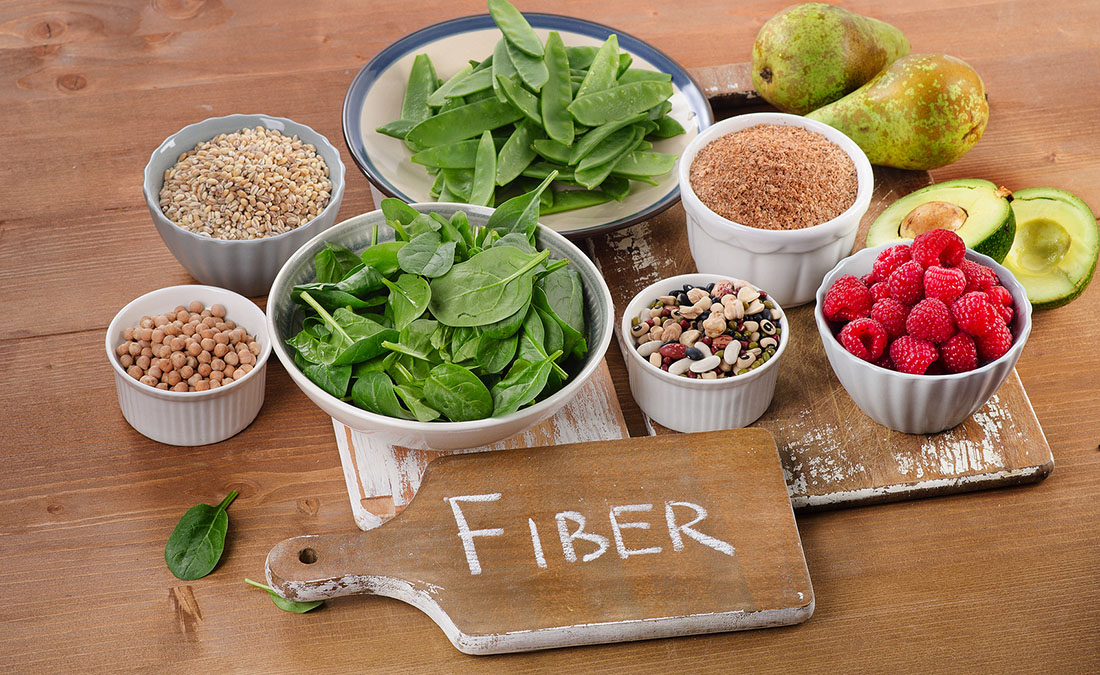 Chronic kidney disease (CKD) is usually considered a disease of the kidneys. Makes sense, right?
Chronic kidney disease (CKD) is usually considered a disease of the kidneys. Makes sense, right?
No, according to a new study published in Nature Microbiology, there is another organ that’s responsible for CKD.
Even better, this new study reveals that if you eat more of one type of food, you can trick this organ into treating your kidney disease.
This study starts with fiber, which is found in fruits, vegetables, legumes, and whole grains. It’s well known for promoting digestive health.
Researchers from DTU National Food Institute and the University of Copenhagen have discovered that fiber does much more than keep our bowels regular. It influences how gut bacteria metabolize tryptophan, an essential amino acid found in protein-rich foods like chicken, salmon, and legumes.
Tryptophan is vital for our health because our bodies can’t produce it; we must obtain it from our diet. Once in our gut, it can be broken down by different types of bacteria, leading to either beneficial or harmful outcomes. This new study reveals that dietary fiber plays a crucial role in directing this process.
This is how it works.
There are two specific bacteria, E. coli and C. sporogenes, that compete for tryptophan in your gut. Both want to grab as much of it as possible so they can break it down.
E. coli converts tryptophan into a compound called indole, which, among other bad things, causes chronic kidney disease (CKD).
On the other hand, C. sporogenes converts tryptophan into indolelactic acid and indolepropionic acid, both of which are linked to health benefits, including protection against inflammatory bowel diseases, type 2 diabetes, cardiovascular diseases, and neurological disorders.
So, we obviously want C. sporogenes to win this war for tryptophan so that we can avoid CKD.
This study, which was conducted as a series of experiments in both the lab and in mice, shows that a high fiber diet can tip the balance to help C. sporogenes win the battle. Here’s how.
The scientists discovered that bacteria that break down fiber play a pivotal role. These bacteria break down dietary fibers into simple sugars, which E. coli likes more than it likes tryptophan. When E. coli consumes these sugars, it leaves the tryptophan for C. sporogenes to have.
In this case, E. coli doesn’t produce the substance that causes CKD, and C. sporogenes can convert the tryptophan into compounds with beneficial health effects.
So, here is this process again, step-by-step:
-
1. You eat fiber.
2. Bacteria breaks it down to simple sugars.
3. E. coli grabs the simple sugars and leaves the tryptophan alone.
4. C. sporogenes then takes all the tryptophan and converts it to healthy compounds.
5. If E. coli doesn’t convert tryptophan, you dodge CKD.
So, load your diet with plenty of fibrous whole grains, legumes, nuts, seeds, fruits, and non-starchy vegetables to prevent CKD.

 Overcoming IBD
Overcoming IBD Multiple Sclerosis
Multiple Sclerosis Banishing Bronchitis
Banishing Bronchitis Gum Disease Gone
Gum Disease Gone Overcoming Onychomycosis
Overcoming Onychomycosis Neuropathy No More
Neuropathy No More The Prostate Protocol
The Prostate Protocol Brain Booster
Brain Booster
 Ironbound
Ironbound
 Solution for Shingles
Solution for Shingles
 The Bone Density Solution
The Bone Density Solution
 The Ultimate Healing Protocol
The Ultimate Healing Protocol
 The Parkinson's Protocol
The Parkinson's Protocol
 The Chronic Kidney Disease Solution
The Chronic Kidney Disease Solution
 Overthrowing Anxiety
Overthrowing Anxiety The Fatty Liver Solution
The Fatty Liver Solution The Hypothyroidism Solution
The Hypothyroidism Solution
 The End of Gout
The End of Gout The Blood Pressure Program
The Blood Pressure Program
 The Oxigized Cholesterol Strategy
The Oxigized Cholesterol Strategy
 Stop Snoring And Sleep Apnea Program
Stop Snoring And Sleep Apnea Program
 The Arthritis Strategy
The Arthritis Strategy The Vertigo & Dizziness Program
The Vertigo & Dizziness Program The 3-Step Diabetes Strategy
The 3-Step Diabetes Strategy Hemorrhoids Healing Protocol
Hemorrhoids Healing Protocol The Erectile Dysfunction Master
The Erectile Dysfunction Master Weight Loss Breeze
Weight Loss Breeze The IBS Program
The IBS Program The Insomnia Program
The Insomnia Program The Migraine and Headache Program
The Migraine and Headache Program The Neck Pain Solution
The Neck Pain Solution The Menopause Solution
The Menopause Solution The Ejaculation Master
The Ejaculation Master The TMJ Solution
The TMJ Solution The Acid Reflux Solution
The Acid Reflux Solution The Fibromyalgia Solution
The Fibromyalgia Solution The Psoriasis Strategy
The Psoriasis Strategy